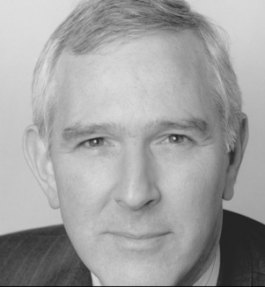My Say - Richard Hall
Magazine
Contributions should ideally be 300 to 500 words in length and of general interest. Please email them to us. WritersServices' decision on whether or not to include each contribution is final.

For those planning a contemporary novel it may be sound advice to write about what you know. But what about writers of historical novels? They cannot have personal knowledge of anything before the recent past.
So for historical fiction should we take the adage to mean ‘know' in the sense of having academic knowledge of the subject, from reading and other research? And should we therefore adapt the injunction to say: "write about what you've studied"? I doubt it, for that would encourage a desiccated and unduly research-based approach.
I would urge instead - at least for historical novels - that the adage should be: "write about what moves you." If the subject affects you deeply, your response will bring an engagement with the people of your chosen period that can sustain you in your research and writing.
With Theatres of War, I didn't consciously choose to write a historical novel; the idea for the story came unbidden. But it concerned a period and issues that had stirred my feelings.
It began whilst restoring a derelict house in Umbria. Neighbours told us that in June 1944 - exactly 70 years ago - British soldiers came over the hill behind the house and through the village. And there was sustained fighting throughout the area.
These accounts came as a jolt, for I knew little about the ‘forgotten' Italian campaign in WW2. But soon I understood that the hilltop towns and peaceful olive groves - which I love - had recently been battlefields. Men had fought and died in liberating this land; I felt immense gratitude for what they had achieved.
I started reading about the campaign and was shocked by the suffering of soldiers and civilians alike. But I also learnt that in 1943 a British soldier had reopened the opera house in war-torn Naples, then a few miles from the front. As I read more, I felt haunted by the contrast between this story of improbable creativity and the bitter winter fighting at Monte Cassino, just up the road. And I couldn't shake off these images.
Many months later, without any conscious decision, these feelings and thoughts coalesced into an idea for a novel. I knew at once that I had to write this story about the self-sacrifice, fortitude and resourcefulness of those caught up in these seismic events. And these thoughts continued to move me - throughout a year of research and six years of writing and rewriting.
So, whilst others write about what they know, I intend to keep writing about those events that move me most.
Richard Hall was born in 1945 in London, where he still lives. After a degree at Oxford, he became a Chartered Accountant and worked in the City for 30 years. For two years he worked in Milan and learnt Italian. He left the City to become Finance Director of the Royal Opera House. Not surprisingly his first novel - Theatres of War - is set in Italy and a passion for opera is an important theme.
Theatres of War by RJJ Hall - a story of Love, War and Opera - was published in paperback and ebook in September 2013; it recently won The People's Book Prize for Fiction 2013/14
My Say 7: Timothy Hallinan on the Writing Session.
My Say 8: Jae Watson on the magic formula which enables writers to 'cross that fine, elusive line dividing unpublished and published writers'.
My Say 9: Zoe Jenny, who is Swiss, on writing in English and why it was liberating.
My Say 10: Dominae Primus on Writersservices website, then and now.
My Say 11: by Natasha Mostert, There are few things as satisfying as typing THE END to a manuscript.
